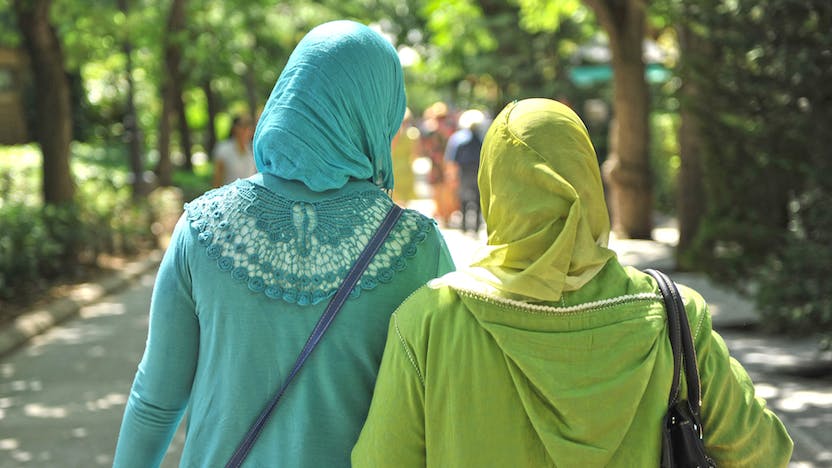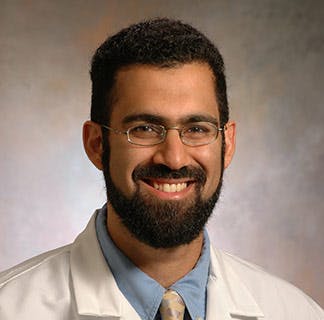For Muslim women, faith-based messaging leads to more mammograms

Religion and faith-based beliefs can have a significant impact on health care decisions, a fact borne out by ongoing studies at UChicago Medicine.
A survey of 240 Muslim women in the Chicago area, for example, found that 37 percent had not obtained a mammogram in the previous two years. A similar survey of 207 immigrant Muslim women found 52 percent had a mammogram in the previous two years, but a third had never been screened for breast cancer. Both of these studies showed that religious beliefs and cultural values, such as modesty concerns, contributed to observed screening disparities.
To improve screening rates, Aasim Padela, MD, associate professor of medicine and director of the Initiative on Islam and Medicine, and his team, developed and tested faith-based classes to address religious dimensions of breast cancer screening. The classes were held at Orland Park Prayer Center and at the Muslim Educational Center in Morton Grove.
The project’s design and results appear in Padela’s latest paper, “Reducing Muslim Mammography Disparities: Outcomes From a Religiously Tailored Mosque-Based Intervention,” published in the Journal of Health Education & Behavior in April.
“In this community we found religion-related barriers persist that must be attended to: if we don’t address them, we won’t improve anything,” Padela said. “We set out to frame cancer screening behavior within a religious framework that is theologically sound.”
In this community we found religion-related barriers persist that must be attended to: if we don’t address them, we won’t improve anything.
Fifty-eight Muslim women whose average age was 50 participated in two half-day, mosque-based classes. None had a mammogram in the past two years. Leading the classes were female peer educators from two communities (South Asian and Arab) trained by Padela’s team. A religious scholar, a breast cancer surgeon and a community health expert gave talks during the program.
Religiously tailored messages were used to motivate behavior change and address the religious concerns women had about mammography. For example, the barrier belief “breast cancer screening is not important because God will decide who will get cancer” was addressed by discussing the idea that “although God controls disease and illness, it is my religious responsibility to take care of my body and get cancer screening.”
For many of the women, the messages came through loud and clear. “Immediately after the second class, we had them rate their likelihood of getting a mammogram, which increased over the number before the class,” Padela said. Of the 58 participants, 20 obtained a mammogram by the six-month follow-up and another two did so at the one-year mark.
The intervention program may be adapted to the Somali Muslim community in Minnesota, Padela said, and is also being looked at by health educators in Muslim-majority nations abroad.

Aasim Padela, MD
Aasim I. Padela, MD, MSc, FACEP, is Director of the Initiative on Islam and Medicine and Associate Professor in the Section of Emergency Medicine at the University of Chicago.
Learn more about Dr. Padela